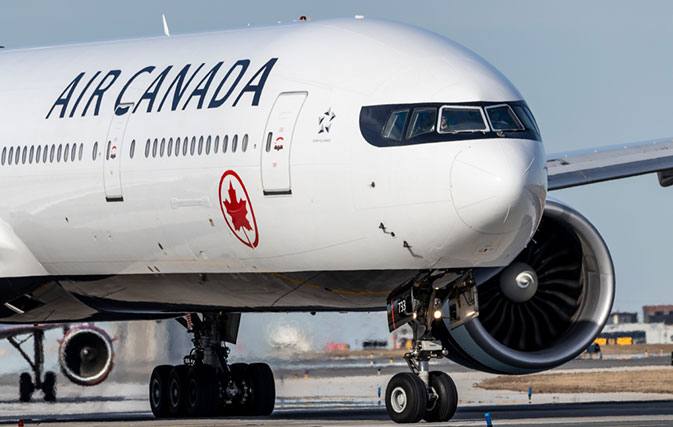MONTREAL — Starting today people flying to or from Canadian airports will have to have masks, to try to slow the spread of COVID-19.
Passengers won’t be allowed to board planes unless they have non-medical face coverings, says Minister of Transport Marc Garneau.
They’ll only have to wear the masks when they have to be close to others, such as at screening points or if the planes are crowded.
Masks are being encouraged for passengers on boats, ferries, trains and buses but aren’t being made mandatory.
Following the directive Air Canada says it is making its recommended face-covering practice mandatory as an additional safeguard for its customers and crew. Travellers who do not have their own face-covering will be provided with a suitable mask at security by CATSA.
Since early April Air Canada had already been strongly recommending that all customers wear a face-covering over their mouth and noses while onboard its flights. Now Air Canada says passengers on all itineraries must wear masks at check-in, at time of boarding, and upon entering the aircraft where social distancing is not possible. Customers will be asked to lower their masks to facilitate full ID checks as required by Canadian regulations at check-in. While on board, customers will be required to wear their face coverings, in accordance with the Ministerial Directive and in accordance with the directions from the cabin crew.
Customers may bring their own face covering which may include a cloth mask, scarf or similar item. The Public Health Agency of Canada’s website has examples of recommended non-medical coverings.
Air Canada has also implemented social (physical) distancing where possible during boarding and where feasible, on-board its aircraft, with as few people sitting next to one another as possible. Air Canada also recommends customers check-in online or via the Air Canada App prior to arriving at airports to minimize social contact at airport check-in areas.
Meanwhile Air Canada is saluting hundreds of its employees who have worked to fly thousands of stranded Canadians home as its special flights operated in collaboration with the Government of Canada come to an end.
The program, which began March 21, has repatriated approximately 6,600 Canadians from Morocco, Spain, Ecuador, Peru, Algeria, Argentina, and Colombia.
“Overnight, the COVID‑19 crisis struck the entire planet in unprecedented ways and thousands of our fellow Canadians found themselves stranded abroad as a result of the numerous restrictions quickly imposed by various governments,” said Ferio Pugliese, Senior Vice President, Air Canada Express and Government Relations at Air Canada.
“Heartfelt thanks must first be given to our crews, who agreed to be on the front lines to support these thousands of people eager to get home to be among their loved ones during these difficult times. The tireless efforts, dedication, compassion and professionalism of our employees on the ground and the terrific job they did expertly carrying out these complex, global operations have been nothing short of exemplary. Our customers and their families have shared with us their relief and feeling as if they were already home, once they boarded our flights, and we are proud to bring them back to Canada.”
In total, Air Canada operated 21 special flights using wide‑body aircraft in close cooperation with Global Affairs Canada. Air Canada remains available to operate additional special flights in collaboration with the federal government.
“Over the past few weeks, we have mounted one of the largest repatriation operations of Canadian travellers stranded abroad in the country’s history. All returning travellers are subject to a mandatory self-isolation period of 14 days. We faced unprecedented obstacles, from airspace closures to tight travel restrictions,” said François-Philippe Champagne, Minister of Foreign Affairs. “Air Canada played a vital role in bringing thousands of our fellow Canadians home. I want to thank all those who worked day and night to make this major undertaking possible.”
Despite a significant reduction in its network, Air Canada continues its repatriation efforts on its regular commercial flights. Since March 15, it has brought more than 300,000 passengers back to Canada from Asia, Europe, Caribbean/South America and the United States. This included Canadians repatriated from India, South Africa, Croatia, Serbia and the UAE through its London-Heathrow air link.
Through Air Canada Cargo, Air Canada also continues its operations to transport medical supplies and essential goods. Since March 1 it has carried nearly 250 tonnes of personal protective equipment (PPE) across the country. Air Canada and the Air Canada Foundation have also donated 14,118 kg of food items originally intended for Air Canada flights, the equivalent of nearly 31,000 meals, to help support Canadian families in need.
The national food rescue effort through Second Harvest has directly supported 17 organizations across the country from Vancouver to Halifax.

